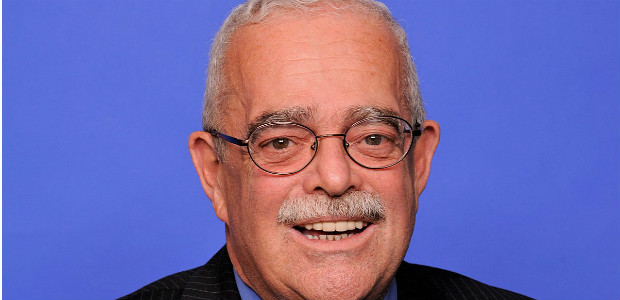Connolly: Choppy waters ahead for civilian agency IT
FedRAMP, 18F and the federal workforce as a whole face uncertain futures in the next administration, according to Rep. Gerry Connolly.

Rep. Gerry Connolly, a co-author of FITARA, said federal civilian agencies and key innovation programs could suffer under the Trump administration.
The General Services Administration's Federal Risk and Authorization Management Program for cloud services, 18F and the federal workforce as a whole will see possibly dramatic changes in the coming months as the new administration takes shape, a key IT-savvy congressman predicted.
Although President-elect Donald Trump's transition team hasn't shared a lot of details about its plans for IT issues, its broader approach of reducing taxes, increasing defense spending and reducing the budget and workforce for civilian agencies will have repercussions for parts of federal IT, said Rep. Gerry Connolly (D-Va.), who serves on the House Oversight and Government Reform Committee and helped craft the Federal Information Technology Acquisition Reform Act.
"The transition team has been very close-knit," he said at the Professional Services Council's Vision conference on Nov. 16. "It's not a broad-based talent search. It's very unusual for an incoming president. We just don't have a lot of information."
However, he said there was good news for IT in the House because Reps. Robin Kelly (D-Ill.), Will Hurd (R-Texas) and Mark Meadows (R-N.C.) -- the bipartisan team that crafted the Modernizing Government Technology Act, which contains provisions for an IT modernization fund -- will return for the next congressional session.
Nevertheless, Connolly said he believes some IT programs could be in for big changes or even elimination, particularly FedRAMP. He added that efforts to streamline the certification process for cloud service providers have not materialized. Instead, it has extended from an expected six months or so to a two-year process that costs millions of dollars.
"It's anything but efficient," he said. "It has not streamlined the process. It is wrapped up in a bureaucracy that's maddening [and] I am deeply concerned that was allowed to happen."
He added that "we have to clean up FedRAMP, and we'll give the new administration an opportunity to lay out its thoughts and plans, but absent that, I would predict there would be legislative action."
Connolly also said he plans to tackle reforming the program in the 115th Congress to "construct an accelerated and navigable FedRAMP."
With regard to GSA's 18F innovation shop, Connolly said, "I would suggest that's probably a candidate on the chopping block for a lot of reasons, not the least of which is that it has no political constituency. I'd put a red flag on that one. It's on life support, and we'll see how it will do."
In addition, Trump's proposed hiring freeze could wreak havoc on cybersecurity efforts, Connolly said.
"Cybersecurity capabilities need to grow," he said. "That means you need to be recruiting talent and paying them. A blind across-the-board freeze essentially says all missions are the same, that they have the same value. Well, they don't."
Furthermore, Trump's proposed budget strategy could make life more difficult for civilian agencies, which would face steep cuts in favor of increasing Defense Department spending. "The fine print isn't on the plan yet," Connolly said. "We'll have to see how [Trump] redeems campaign promises.
More broadly, Connolly said any bipartisan agreement on Capitol Hill during the coming administration will be scarce.
"We're in for some very choppy waters," he said, adding that Trump's selection of former Breitbart News executive Stephen Bannon as chief strategist "is not very reassuring. We want to give [Trump] the benefit of doubt, but the early steps in the transition are not reassuring."
NEXT STORY: What's next for government innovation groups?





